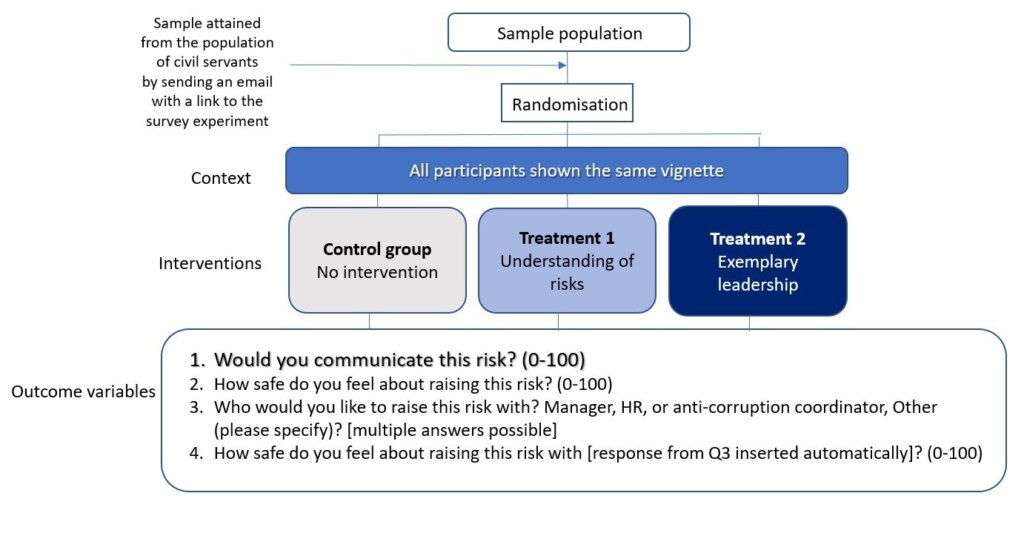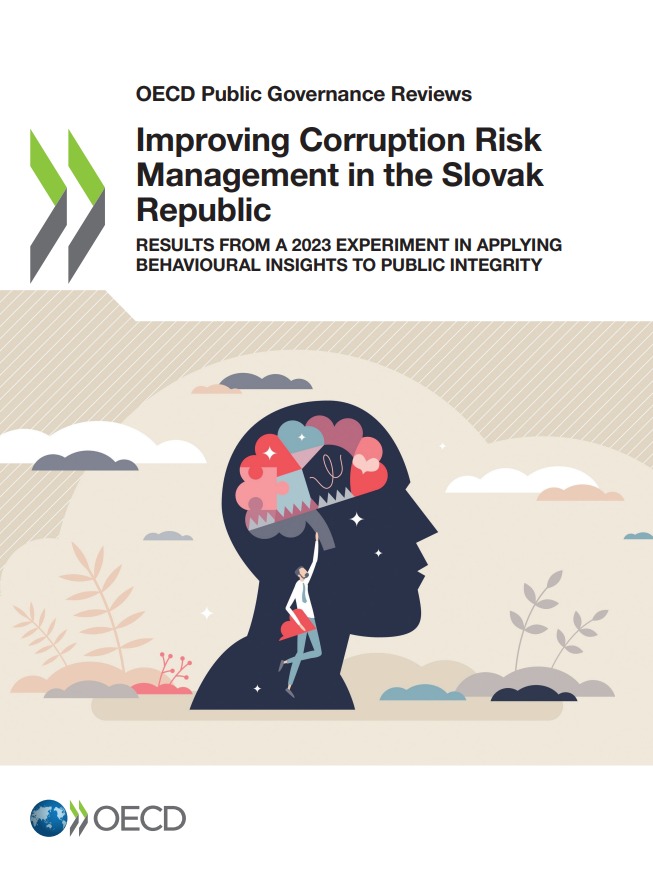Improving Corruption Risk Management in the Slovak Republic: Results from a 2023 Experiment in Applying Behavioural Insights to Public Integrity

Introduction
An effective corruption risk management system is crucial for public integrity. It ensures striving for efficient and targeted integrity measures, enabling the achievement of public policy goals.
A key aspect influencing the potency of risk management systems is the behaviour and decision-making of the actors involved. Understanding the behavioural elements that affect corruption risk management can support the design, implementation and development of better corruption risk management policies.
For this reason, the OECD and the Corruption Prevention Department of the Government Office of the Slovak Republic partnered to apply behavioural science methods to strengthen the country’s risk management practices in the public administration. The study was implemented as part of a broader public governance project financed by the European Economic Area and Norway.
The OECD BASIC toolkit, a framework to apply behavioural insights in public policymaking, was applied to the Slovak Republic’s risk management system. Specifically, the team implemented a survey experiment with over 2500 public officials across Slovak public administrations to test the potential effectiveness of behavioural strategies in promoting risk communication among public officials.

Key Experimental Findings
The experiment showed that behavioural science applications can increase the propensity of public servants to speak up about potential conflicts of interest and untransparent hiring processes. The experiment was conducted in the form of a randomised trial, meaning that different participants were randomly selected to be exposed to slightly different versions of the experiment. This enables analysis of how different factors affect participants’ decision-making processes.

In a “business as usual” control scenario, less than half of respondents (48%) reported that they would communicate risks to their hierarchy. However, this rate significantly increased when participants were exposed to behaviourally-informed messages leveraging social norms.
Figure. The two behavioural interventions had a significant effect on the likelihood of communicating a risk, compared to the control group

Note: The error bars display the 95% confidence intervals. The error bars show the spread around the mean. The error bars are relatively short, entailing that there is relatively little variation. The error bars do not overlap vertically, which signals a statistically significant difference between the means across the control and the treatment groups.
Employees who were exposed to examples of good ethical leadership were 14 percentage points more likely to communicate a risk compared to the respondents in the control group. On the other hand, employees who were exposed to a message aiming to improve their understanding of risks were 9 percentage points more likely to communicate a risk, compared to the control group.
Insights and Recommendations
- Behavioural strategies can be an effective tool for encouraging public sector integrity
- Public servants should feel safe and be encouraged to communicate risks
- Exposure to good ethical behaviours from leaders can enhance the likelihood of public servants communicating corruption risks
- Anti-corruption coordinators and cross-agency working groups could act as important institutional leaders for effective risk management
- Knowledge of risk communication channels and trust in the system contribute to the likelihood of communicating about corruption risks
- Enhanced awareness of the risk management system and function can contribute to increasing the understanding of the importance of communicating integrity risks
The report is the result of a collaborative effort between the OECD Anti-Corruption and Integrity in Government Division and the Innovative, Digital and Open Government Division, within the OECD Public Governance Directorate.

Improving Corruption Risk Management in the Slovak Republic:
Results from a 2023 Experiment in Applying Behavioural Insights to Public Integrity
Published: 20 April 2024
